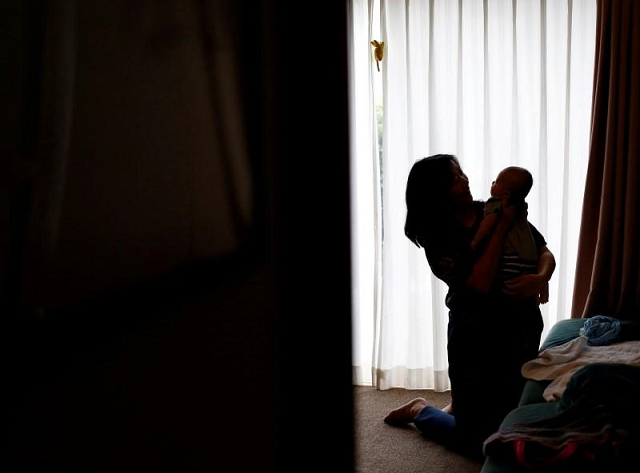Japan beefs up child welfare measures after 'soul-crushing' abuse death
Japan is taking emergency steps to boost the number of child welfare workers by 60% within five years

Japan beefs up child welfare after 'soul-crushing' child abuse case. PHOTO: REUTERS.
The death in March of the five-year-old girl, Yua Funato, was 'soul-crushing', Prime Minister Shinzo Abe has said, in a case that exposes the shortcomings in Japan's child welfare services long targeted by critics.
Child maid abuse case: Judgment suspended as judge, wife appeal conviction
"Mama, I will make myself do much, much better tomorrow than I did today, without being told by Papa and Mama, so please forgive me, please, I beg you, forgive me," Yua pleaded in a notebook used for writing drills forced on her by her stepfather, who also kicked and beat her.
She weighed 12 kg (26 lbs), or about as much as the average two-year-old, at the time of her death, media said. Yua's parents have been charged over the death, which police said was due to pneumonia-induced blood poisoning caused by malnutrition.
Announcing the emergency measures on Friday, Japan said it would also order local authorities nationwide to confirm the safety of all pre-schoolers, relying on the help of law enforcement officials, if necessary.
"The government will work as one to create a society that protects the lives of children," its top spokesperson, Yoshihide Suga, told a news conference.
Three weeks before Yua died, her mother had refused to let welfare workers see her at the family's apartment in Tokyo, the head of the local authority in Japan's capital said. He said the workers did not insist on seeing Yua because the family was no longer under official supervision, and they wanted to build an amicable relationship with the family, which had recently moved from the western prefecture of Kagawa.
Despite rights enshrined in child welfare law, children in Japan have no independent advocate or representation, unlike other developed countries such as Britain and the United States, leaving their well-being in the hands of welfare workers.
That could be dangerous, experts say, since the workers are public servants often rotated out every several years, many with no social welfare experience or skill in proper assessments.
"In practice, the way local authorities operate is all over the place," said former welfare minister Yasuhisa Shiozaki, even though the government has set out guidelines for the workers. About 2,000 child welfare workers are to be added to the current figure of about 3,250, which has not kept pace with a doubling in reports of child abuse over the five years to March 2017, to reach 122,578.
'Dr Aafia subjected to physical, sexual abuse in US detention center'
Unheard voices
Welfare workers' failure to identify and tackle the risks Yua faced may have proved fatal for her, a pattern seen in many abuse deaths of children, said Dr Fujiko Yamada of the Japanese Medical Society on Child Abuse and Neglect.
When her family lived in Kagawa prefecture, Yua was taken into protection twice in quick succession during the period from late 2016 to mid-2017, after showing signs of physical abuse. Last July, authorities released her under supervision, including regular observation by her doctor, who, in each of the following two months, alerted welfare workers to renewed signs of physical abuse, the head of the local authority told Reuters. Yua had also said she did not want to go home, which experts called an immediate red flag.
"I want to know why the authorities didn't take any action," Yamada told politicians at a meeting last month. "How the words of the doctor, and Yua herself, could be taken so lightly is beyond comprehension."
The head of the Kagawa local authority said the idea of removing Yua more permanently from her parents was dropped after they refused, and officials assessed her injuries as insufficient to convince a family court to override their wishes.



















COMMENTS
Comments are moderated and generally will be posted if they are on-topic and not abusive.
For more information, please see our Comments FAQ